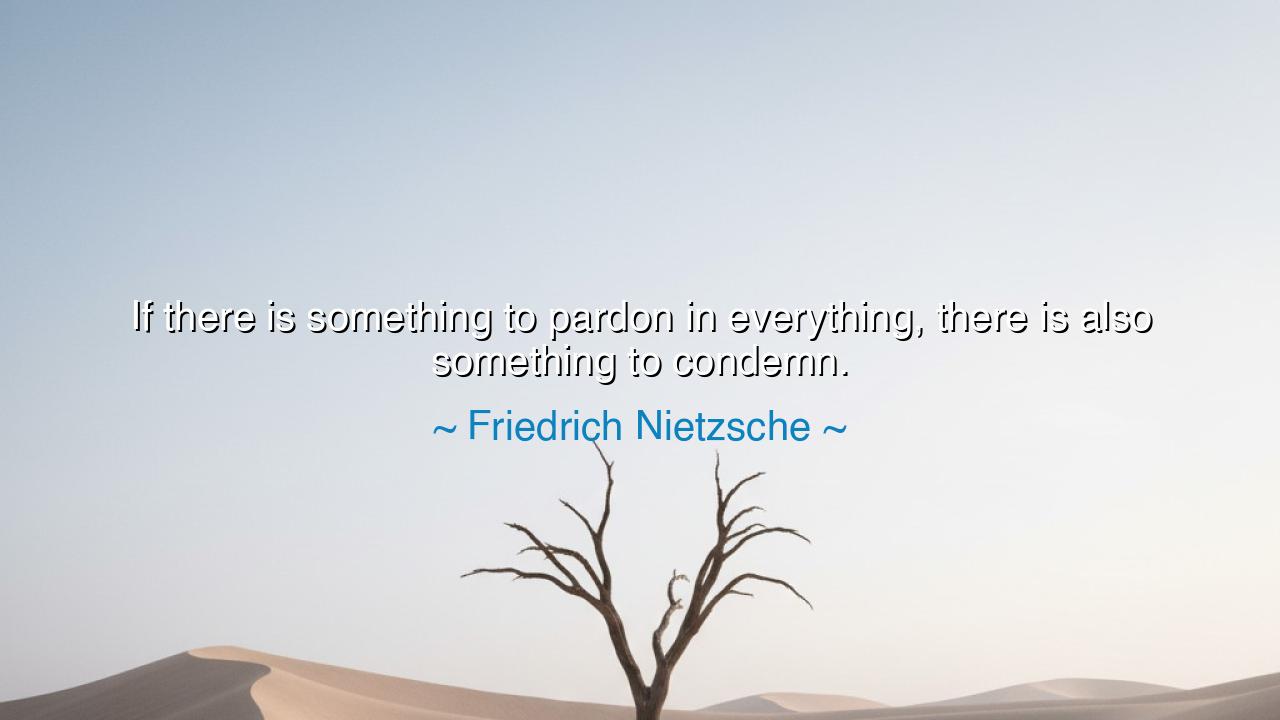
If there is something to pardon in everything, there is also






Opening Scene – Narrated by Host
The room was bathed in the soft light of the afternoon, the world outside moving at its usual pace. Jack sat by the window, his fingers lightly tracing the edge of a book in front of him, but his mind was far from the pages. A thought had taken root in his mind, and no matter how much he tried to focus on something else, it kept pulling him back.
Jeeny walked in, sensing the shift in the atmosphere. She placed a cup of tea on the table beside him and sat down, her gaze soft with curiosity.
Jeeny: “You seem deep in thought again. What’s on your mind?”
Jack looked up at her, blinking as if he had been lost in a distant place. He offered a small smile but quickly shifted back to his contemplative expression.
Jack: “I was thinking about something Friedrich Nietzsche said: ‘If there is something to pardon in everything, there is also something to condemn.’ It struck me. It’s like he’s acknowledging that life is full of contradictions. We tend to focus on forgiveness and understanding, but maybe we forget that there are moments, actions, or even people, that deserve condemnation, too.”
Jeeny sat back, her fingers curling around her tea cup as she processed the weight of his words. Her gaze became more thoughtful.
Jeeny: “That’s a powerful way of putting it. I think we often think of forgiveness as the higher road, the one we should always strive for, but Nietzsche’s words make us confront the other side of the coin. If we can forgive, if we can find reasons to pardon, there’s still the reality that some things, some actions, are simply beyond redemption. Not everything can be forgiven, and sometimes, we need to stand firm in condemning things that are truly harmful.”
Jack: “Exactly. It’s like we’re so focused on letting things go, on being compassionate, that we forget that some things need to be condemned—whether it's toxic behavior, harmful ideologies, or actions that hurt others. To forgive everything would be to ignore the gravity of those things. And in some cases, not condemning the wrongs of the world only lets them perpetuate.”
Host: The conversation deepened as Jack and Jeeny explored the balance between forgiveness and condemnation. Nietzsche’s words didn’t suggest that everything should be condemned, nor that everything should be pardoned. It was about understanding that there was a time for compassion, but also a time for justice, for standing firm against things that were fundamentally wrong.
Jeeny: “I think what Nietzsche is pointing out is that it’s easy to lean too far into either extreme. We can’t live in a world where everything is condemned, but we also can’t live in one where everything is excused. Some things are simply unacceptable, and it’s important that we acknowledge that, even if we do have a tendency to forgive.”
Jack: “Right, and I think it’s about knowing where to draw the line. It’s about recognizing that certain actions—whether they’re personal or societal—require accountability. Forgiveness is a powerful tool, but so is condemnation, especially when we need to protect ourselves and others from harm.”
Jeeny: “And it’s not just about others, either. There are times when we have to condemn our own actions, our own mistakes. There’s something freeing in that, too—acknowledging when we’ve done wrong, and holding ourselves accountable for it.”
Host: The room felt quieter now, the weight of their conversation settling in. Jack realized that Nietzsche wasn’t just talking about the external world; he was also addressing the internal contradictions we all face. The balance between forgiveness and condemnation wasn’t about choosing one over the other—it was about recognizing the complexity of life and knowing when each was necessary.
Jack: “Maybe it’s about finding the right balance. Some things need to be forgiven, and some things need to be condemned. Life isn’t just about absolving every wrong—it’s about understanding when to let go and when to stand firm. And that’s a much harder task than just choosing one side.”
Jeeny: “Exactly. It’s about being discerning, about knowing when to embrace compassion and when to fight against something that’s harmful. Both forgiveness and condemnation are needed, but only when they are applied to the right things. It’s a difficult balance, but it’s what makes us human.”
Climax and Reconciliation
Jack sat back, the weight of their conversation lingering in the air. He realized that Nietzsche’s words weren’t an argument against forgiveness, but a reminder of the complexities of the human experience. It wasn’t always black and white—sometimes, the world required us to forgive, and sometimes it required us to condemn. Both were necessary for growth, for justice, and for truth.
Jack: “So, maybe it’s not about choosing one over the other, but about understanding when to do each. Sometimes, forgiveness is needed, but sometimes, we need to stand up and condemn what’s wrong in the world.”
Jeeny: “Yes, it’s about being aware of the nuances, the times when we need to let go, and the times when we need to act against harm. Both forgiveness and condemnation are tools in the same fight for justice, for truth, for healing.”
Host: The room felt quieter now, but there was a sense of clarity between them. Outside, the world continued its steady rhythm, but inside, Jack and Jeeny had come to a deeper understanding. Life wasn’t about avoiding difficult choices—it was about recognizing when compassion was needed and when accountability and justice had to take precedence. Through that awareness, they could find a path toward truth, healing, and growth.






AAdministratorAdministrator
Welcome, honored guests. Please leave a comment, we will respond soon